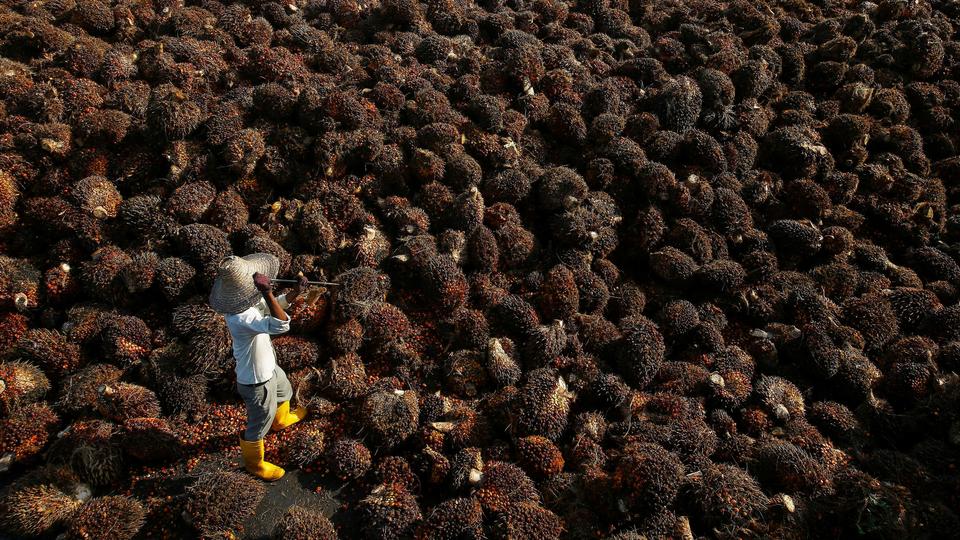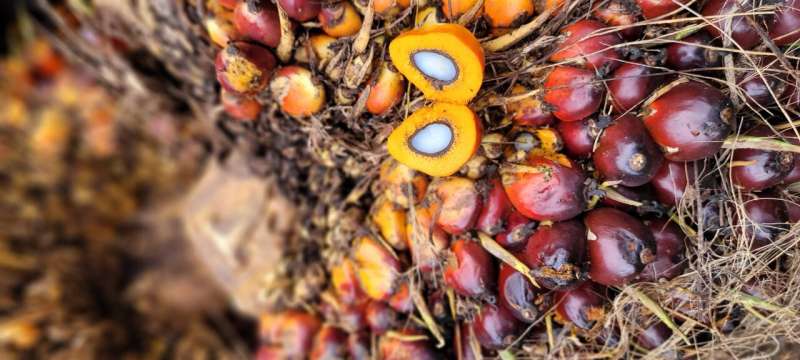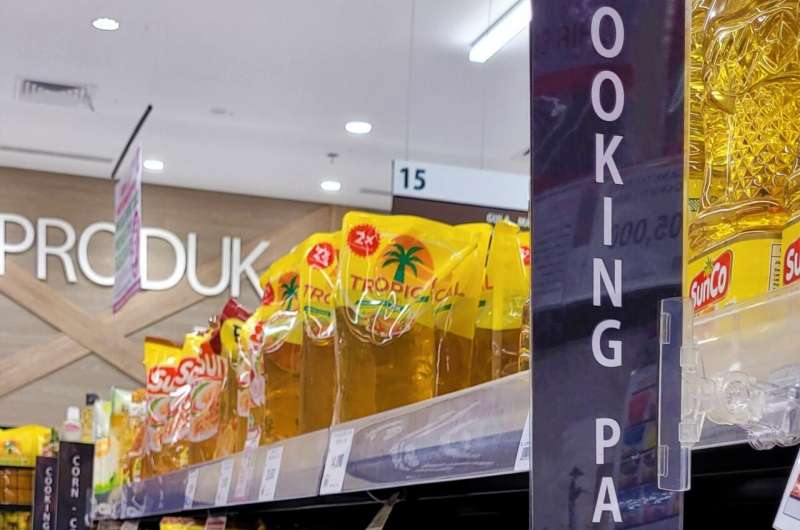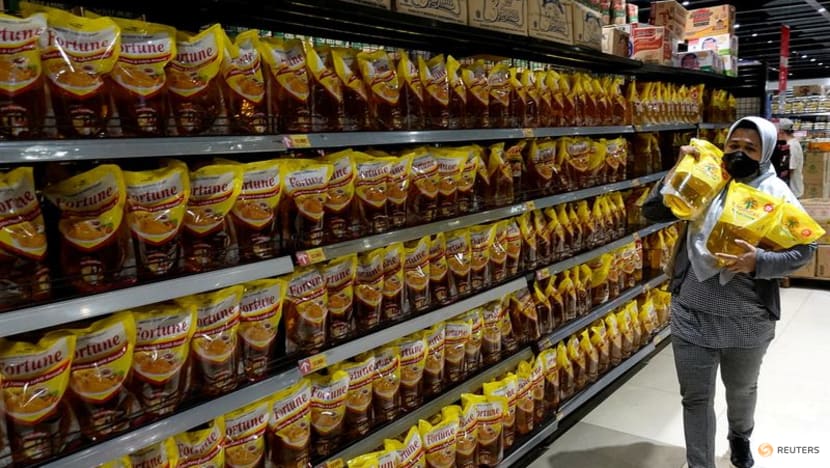UPDATED
US bans palm oil imports from Malaysian company over abuses
The ban on Sime Darby is another blow to an industry that has faced mounting allegations of labour and human rights abuses.
The United States has banned imports from a Malaysian palm oil giant whose products are found in numerous household goods over concerns that its workers face a litany of abuses.
The move against Sime Darby Plantation, one of the world's biggest producers, marks the second time the US has blocked shipments from a palm oil company in the Southeast Asian nation in recent months.
Palm oil is a common ingredient in items ranging from processed foods to cosmetics, with Malaysia and neighbouring Indonesia producing 85 percent of the world's supply.
But activists have long claimed that low-paid workers on plantations face abuse, and also blame the industry for driving destruction of rainforests to make way for plantations.
Workers facing abuse
Announcing the ban late on Wednesday, US Customs and Border Protection (CBP) said there was evidence Sime Darby workers face abuses including sexual and physical violence, withholding of wages and restrictions on movement.
The CBP said it issued a 'withhold release order' on Sime Darby, which will allow it to detain shipments based on suspicion of forced labour involvement under longstanding US laws aimed at combating human trafficking, child labour and other human rights abuses.
The CBP said the order was based on a months-long investigation that reasonably indicated the presence of the International Labour Organization's forced labour indicators at Sime Darby plantations.
"We do believe that there are some issues that are systemic across all of Sime Darby's plantations," Ana Hinojosa, executive director of CBP's Trade Remedy Law Enforcement Directorate, said on a call with reporters.
READ MORE: True face of beauty brands: Women palm oil workers raped and abused
Malaysian companies on radar
Sime Darby is the third Malaysian company to be slapped with a US ban this year over forced labour allegations after FGV Holdings, another Malaysian palm oil producer, and Top Glove, the world's biggest producer of medical-grade latex gloves.
Malaysia relies on over 337,000 migrant workers from countries like Indonesia, India and Bangladesh to harvest the palm fruit.
The CBP said the United States imported about $410 million worth of crude palm oil from Malaysia in the fiscal year that ended in September 2020, accounting for just over 30 percent of the United States' total palm oil purchases.
Sime Darby says its annual exports to the United States total about $5 million.
The company, which supplies major firms like Nestle and Unilever, runs a network of sprawling plantations, and employs migrant workers from countries including Indonesia and Bangladesh.
Earlier this year, anti-trafficking group Liberty Shared had petitioned the CBP to ban imports from Sime Darby over concerns about labour abuse.
In October, the US banned imports from another Malaysian palm oil producer, FGV Holdings, following a lengthy probe that found indications its workers faced abuse.
Sime Darby did not respond to requests for comment.
It supplies to some of the biggest names in the business, from Cargill to Nestle, Unilever and L'Oreal, according to the companies’ most recently published supplier and palm oil mill lists.
The ban "demonstrates how essential it is for Americans to research the origins of the everyday products that they purchase," said CBP acting commissioner Mark A. Morgan.
READ MORE: Malaysia PM stands by Kashmir comments as India calls for palm oil boycott
By MARGIE MASON and ROBIN McDOWELL

FILE - In this Nov. 11, 2020, file photo, women from age 6 to 102 in a family that has worked on a palm oil plantation for five generations hold out the palms of their hands in Malaysia. The U.S. said it will ban all shipments of palm oil from one of the world’s biggest producers after finding indicators of forced labor and other abuses on plantations that feed into the supply chains of some of America’s most famous food and cosmetic companies. (AP Photo/File)
The U.S. said it will ban all shipments of palm oil from one of the world’s biggest producers after finding indicators of forced labor and other abuses on plantations that feed into the supply chains of some of America’s most famous food and cosmetic companies.
The order against Malaysian-owned Sime Darby Plantation Berhad and its local subsidiaries, joint ventures and affiliates followed an intensive months-long investigation by the U.S. Customs and Border Protection’s Office of Trade, said Ana Hinojosa, one of the agency’s executive directors.
Hinojosa said the investigation “reasonably indicates” abuses against workers that included physical and sexual violence, restriction of movement, intimidation and threats, debt bondage, withholding of wages and excessive overtime. Some of the problems appeared to be systemic, occurring on numerous plantations, which stretch across wide swaths of the country, she said.
“Importers should know that there are reputational, financial and legal risks associated with importing goods made by forced labor into the United States,” Hinojosa said in a telephone press briefing.
The order was announced just three months after the federal government slapped the same ban on another Malaysian palm oil giant, FGV Holdings Berhad -- the first palm oil company ever targeted by Customs over concerns about forced labor. The U.S. imported $410 million of crude palm oil from Malaysia in fiscal year 2020, representing a third of the total value shipped in.
The bans, triggered by petitions filed by non-profit groups and a law firm, came in the wake of an in-depth investigation by The Associated Press into labor abuses on plantations in Malaysia and neighboring Indonesia, which together produce about 85% of the $65 billion supply of the world’s most consumed vegetable oil. Palm oil can be found in roughly half the products on supermarket shelves and in most cosmetic brands. It’s in paints, plywood, pesticides, animal feed, biofuels and even hand sanitizer.
The AP interviewed more than 130 current and former workers from two dozen palm oil companies, including Sime Darby, for its investigation. Reporters found everything from rape and child labor to trafficking and outright slavery on plantations in both countries.
Earlier this month, 25 Democratic lawmakers from the U.S. House Ways and Means Committee cited AP’s investigation in a letter calling for the government to come down harder on the palm oil industry in Malaysia and Indonesia, asking Customs and Border Protection if it had considered a blanket ban on imports from those countries.
“In our view, these odious labor practices and their pervasive impact across supply chains highlight the need for an aggressive and effective enforcement strategy,” the letter said.
Sime Darby, which did not immediately comment, has palm oil plantations covering nearly 1.5 million acres, making it one of Malaysia’s largest producers. It supplies to some of the biggest names in the business, from Cargill to Nestle, Unilever and L’Óreal, according to the companies’ most recently published supplier and palm oil mill lists.
Hinojosa said the agency’s decision to issue the ban should send an “unambiguous” message to the trade community.
“Consumers have a right to know where the palm oil is coming from and the conditions under which that palm oil is produced and what products that particular palm oil is going into,” she said.
Meanwhile, Duncan Jepson of the anti-trafficking group Liberty Shared, which submitted the petition leading to the Sime Darby ban, filed two additional complaints Wednesday — one to the UK’s Home Office, questioning the company’s disclosure about its protection of human rights under the country’s Modern Slavery Act, and the other to the Malaysian stock exchange, regarding the company’s stated commitments to sustainability. Both complaints questioned the accuracy of Sime Darby’s disclosures in light of the CPB’s findings.
Jepson said the U.S. ban also should be a red flag for Asian and Western financial institutions that have helped support the industry, saying ties to forced labor could have serious consequences for banks and lenders.
The U.S. government’s announcement about Sime Darby marked the 14th time this year Customs has issued an order to detain shipments from an array of sectors following similar investigations into forced labor. They include seafood and cotton, along with human hair pieces believed to have been made by persecuted Uighur Muslims in Chinese labor camps.
Under Wednesday’s order, palm oil products or derivatives traceable to Sime Darby will be detained at U.S. ports. Shipments can be exported if the company is unable to prove that the goods were not produced with forced labor.












